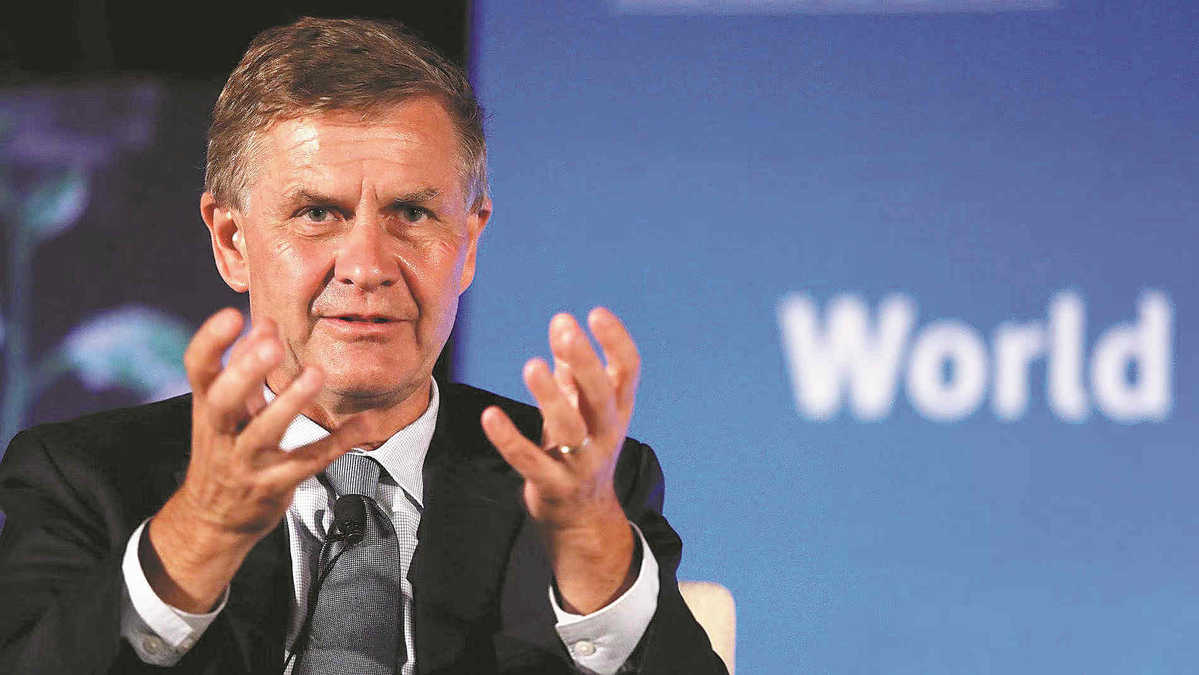Former diplomat praises BRI


He says everyone can contribute to goal of helping develop world
Erik Solheim, former under-secretary general of the United Nations, said that the Belt and Road Initiative, which was launched 10 years ago, has been a "resounding success".
The Norwegian politician said that he expects the message coming out of the ongoing two sessions, the annual sessions of the National People's Congress, and the National Committee of the Chinese People's Political Consultative Conference, to continue work on the BRI and take it in a greener direction.
"President Xi (Jinping) promised that China will stop all overseas coal investment," said Solheim, referring to Xi's announcement in September 2021 at the UN General Assembly that China would not build any new coal-fired power plants abroad, and would step up support for green and low-carbon energy in developing countries.
"He laid a foundation for the green Belt and Road — massive investments in solar, in wind, in green hydrogen and in electric mobility," said Solheim, who was also the former executive director of the UN Environmental Program.
Solheim has traveled to China frequently over the decades and said that the development of the BRI going forward reflects the trajectory of reform and opening-up.
While great effort was made in previous decades to boost economic growth and lift people out of poverty, he believes that Xi has taken China onto a people-centered high-quality development path over the past decade.
Solheim also believes that as the global leader in many green technologies, China has an edge, and that its technology should be made available through investments in developing nations.
"So let's work together to make the Belt and Road green as we go forward in the next 10 years," he said, noting that the BRI has benefited many developing nations over the past decade, citing the China-Laos railway, the Jakarta-Bandung railway, the Djibouti ports and Vietnam's first metro line in Hanoi.
"You can mention so much…the Belt and Road has been a huge success," he said, adding that the initiative has contributed to global peace, economic development and prosperity, as well as interpersonal contact.
According to the government, China has signed BRI cooperation agreements with 151 countries and 32 international organizations as of mid-February.
Solheim said that he felt most countries welcome the BRI and want close relations with China and don't want to be forced to choose between China and the United States.
"Developing nations in Africa and Latin America don't want to be a playground for competition between the United States and China. No one wants that. Everyone wants investment, positive investments from both the United States and China," he said.
Solheim said that the West can come up with similar initiatives to benefit the developing world and that all initiatives can be complementary.
"We can work together, and we should all look for win-win opportunities rather than see everything as a political competition," he said, possibly referring to the rhetoric from some Western politicians opposed to the BRI.
Solheim believes that all sides can use their advantages to help the developing world. Given its many leading universities, the US could help with training for people from developing nations, while China can help with its experience of building high-speed railways and strong solar industry.
"We need global cooperation," Solheim said, stressing that poorer developing nations will suffer the most from any potential Cold War between the US and China.

- China's CR450: A new era of high-speed rail at 400 km/h
- TAN SUO SAN HAO to pioneer future of deep-sea exploration
- Xi's discourses on Chinese modernization published in Japanese
- Officials summoned over alleged garbage bin food served to students
- Caring hearts help to enhance quality special education
- Xi sends condolences to South Korean acting president over plane crash




































